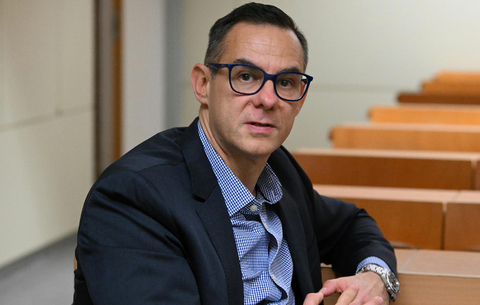Longer novels, less time spent on reading?
"People who write great novels are the ones who can afford to," remarked the literary historian Mátyás Domokos sarcastically. Péter Nádas can afford to write a long novel, because his three volume work Parallel Stories was published in November.
Defining a great novel is no easy task. Going by sales or by the number of pages is an extremely rough-and-ready approach. Critics agree that Géza Ottlik's School on the Frontier (published in 1959, and a cult novel by 1980), is, with its 300 pages, just as much a great novel as Maxim Gorkij's several-thousand-page final work, the life of Klim Samgin.
The time the novel spent in gestation is also a poor guide. Stendhal, the father of the French realist novel, wrote the Monastery at Parma, hóone of his greatest works, in 54 days. Robert Musil is at the other extreme - he spent 20 years writing his novel The Man Without Qulities, and was still at it when he died. His novel of the Austro-Hungarian Empire and the spirit of Germanness in 1913, the final year of peace, was never finished. So he goes beyond the reasonable extremes - in the end, the novel buried him.
"Writing a long novel in Hungary today is a risky business, existentially so, because it brings in no money while you need to support your family," said the novelist György Spiró. Another risk is that the novel will fail to meet the burden of expectation placed on it. Will it be liked, not just by the critics, but by the book-buying public? Péter Nádas claimed in an interview that he had used simpler, earthier language in Parallel Stories than in in his previous novels in order to make sure the book would be widely bought.
There has been a major change in Hungarian literature over recent decades. In the past, poetry was the pinnacle of achievement. Now, prose has taken its place. Kulcsár Szabó said: "Writers are almost expected to come up with a great novel nowadays." Increasingly, poets are prepared to meet this expectation, perhaps discovering in the process that novels are more marketable than volumes of poetry. But it is unclear why shorter, more reader-friendly works are doing less well.









